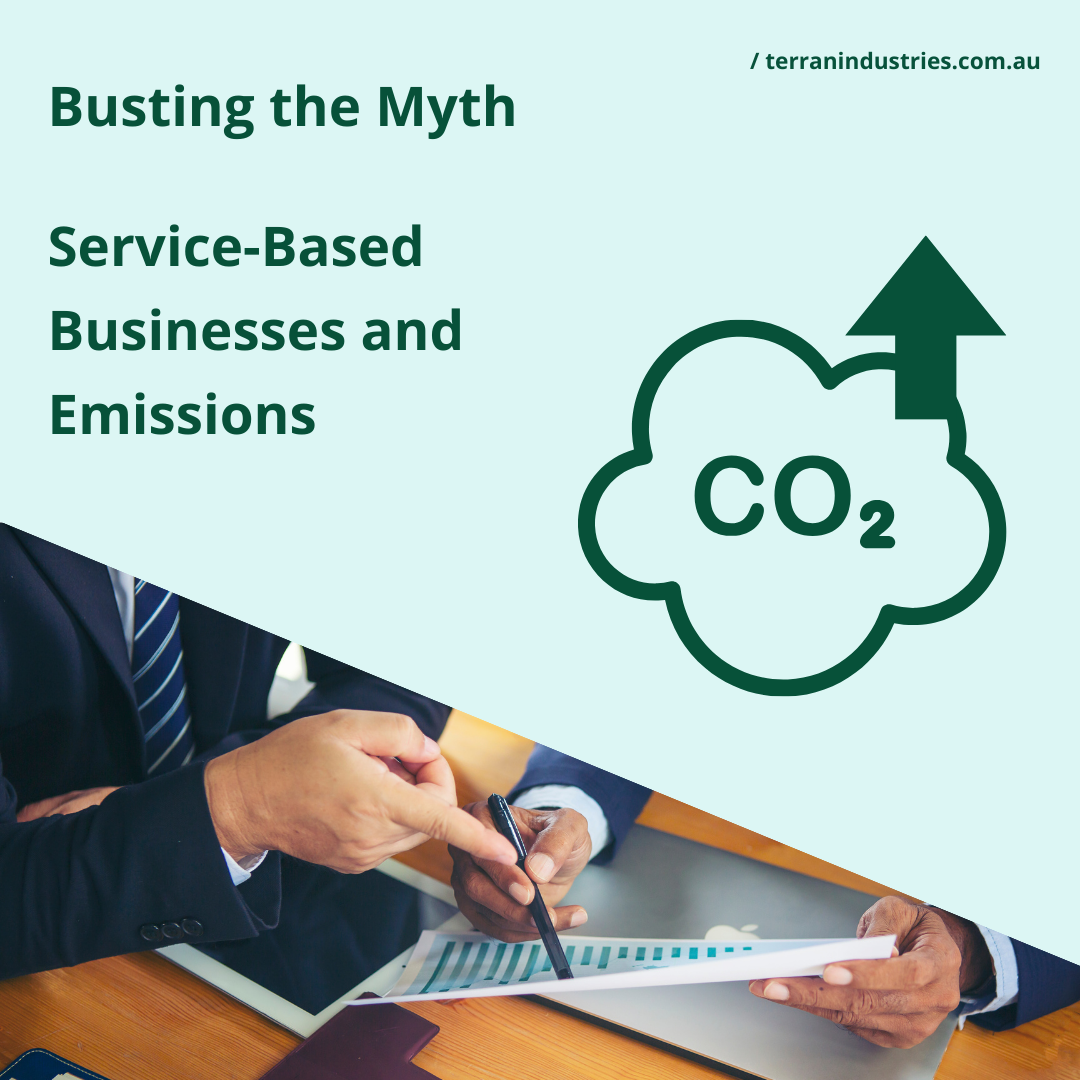BusinessSustainabilityESGSupply ChainGreen Energy Busting the Myth: Service-Based Businesses and Emissions

When discussing emissions and environmental impact, manufacturing and industrial sectors often take centre stage.
However, the myth that service-based businesses produce little to no emissions and operate in an eco-friendly vacuum, still persists. This assumption oversimplifies the intricate web of activities that service industries engage in.
Let's debunk this myth and explore why understanding and dealing with emissions from service-based businesses is crucial for a sustainable future.
Emissions from Service-Based Businesses
While service-based businesses don't produce emissions in the same tangible, smokestack fashion as manufacturing plants, they still have environmental impacts.
Here are some ways in which these businesses contribute to emissions:
Operational Emissions
This includes the emissions generated by the day-to-day operations of the business, such as energy consumption in office spaces, transportation for staff, and waste management.
Digital Infrastructure
The rise of digital services means increased energy consumption in data centres that power cloud computing, online platforms, and digital communication tools. Data centres are huge energy consumers and contributors a large amount to greenhouse gas emissions.
Supply Chain
Service businesses may not produce physical goods, but they rely on supply chains for various resources. This can involve transportation emissions, especially if services require physical goods to be delivered or if employees commute using fossil fuel-powered vehicles. Office equipment and stationary also needs to be considered, as all of these items have an environmental impact.
Business Travel
Client meetings, conferences, and other business-related travel contribute to emissions from transportation, whether by car, plane, or other means.
Why Measuring and Understanding Emissions is Crucial
Accountability and Responsibility
Understanding emissions helps service businesses take responsibility for their environmental impact. By measuring emissions, businesses can set targets, make informed decisions, and implement strategies to reduce their carbon footprint.
Regulatory Compliance
As governments worldwide introduce stricter environmental regulations, measuring emissions becomes essential for compliance. Avoiding fines and penalties is a strong motivator for businesses to understand and mitigate their emissions.
Reputation and Consumer Demand
Modern consumers are increasingly environmentally conscious. Demonstrating commitment to sustainability can enhance a business's reputation and attract eco-conscious customers. Measuring and reducing emissions can be a significant selling point for service-based businesses.
Making a Positive Contribution to the Green Economy
Service-based businesses have unique opportunities to contribute positively to the green economy:
Adopt Sustainable Practices
Implementing energy-efficient technologies, promoting remote work to reduce commuting emissions, and sourcing renewable energy are ways service businesses can reduce their environmental impact.
Invest in Renewable Energy
Transitioning to renewable energy sources like solar or wind power for operations and data centres can significantly reduce emissions.
Promote Sustainable Solutions
Service businesses can develop and offer solutions that help other industries reduce emissions. For instance, consulting firms can advise clients on sustainable practices, while software companies can create tools to optimise energy usage.
Collaborate and Advocate
Service-based businesses can collaborate with environmental organisations, participate in sustainability initiatives, and advocate for policies that promote a green economy.
Conclusion
Service-based businesses may not emit pollutants in the traditional sense, but they are far from being emission-free.
Understanding and addressing emissions is not only a responsibility but also an opportunity for service businesses to contribute to a sustainable future.
By measuring emissions, adopting sustainable practices, and actively participating in the green economy, service-based businesses can play a vital role in mitigating climate change and building a more environmentally conscious world.

Evannah Jayne
Founder & CEO
A passion for sustainability and a desire to change the world, Evannah seeks to raise awareness of the important issues surrounding our planet today.
